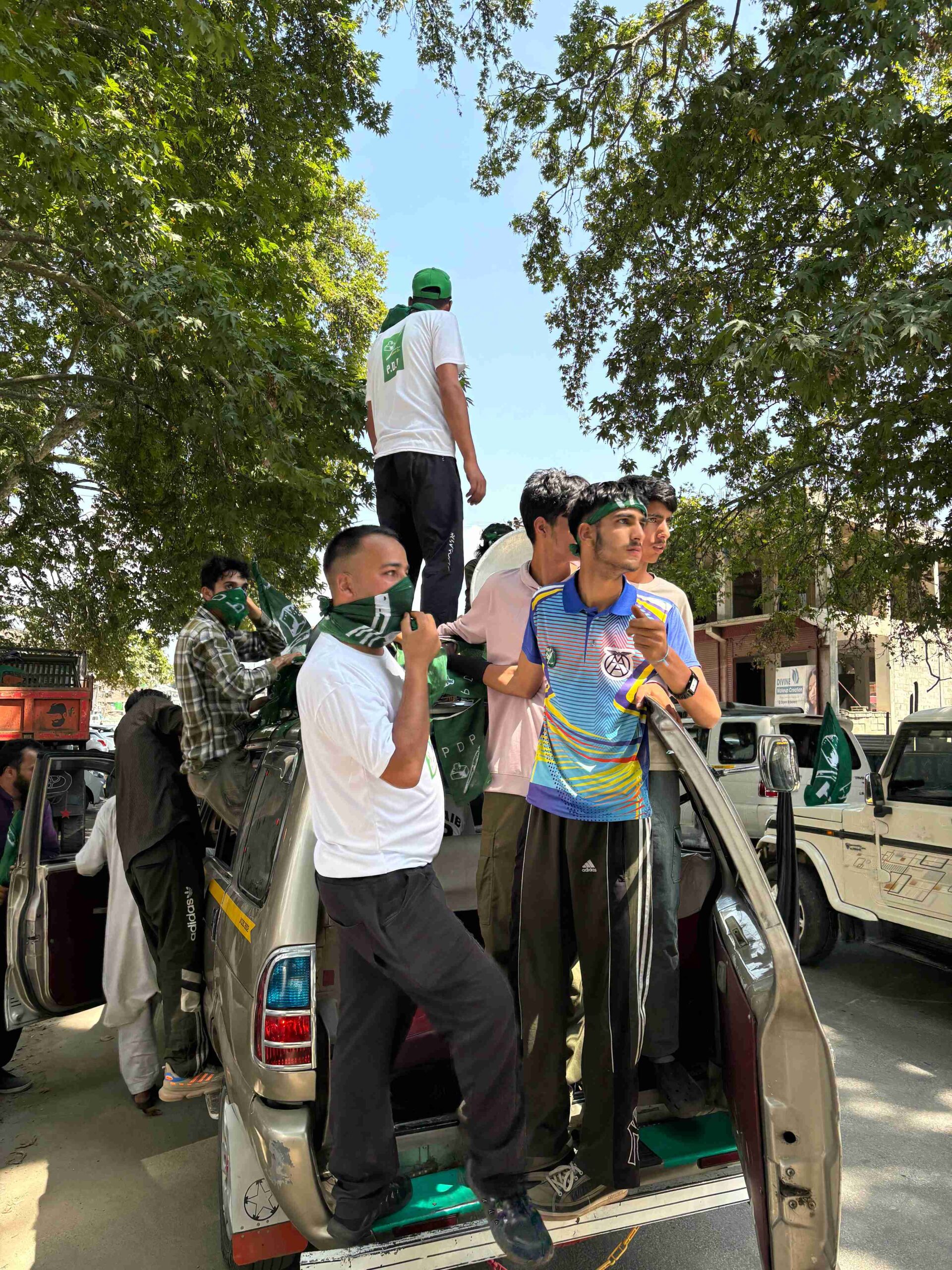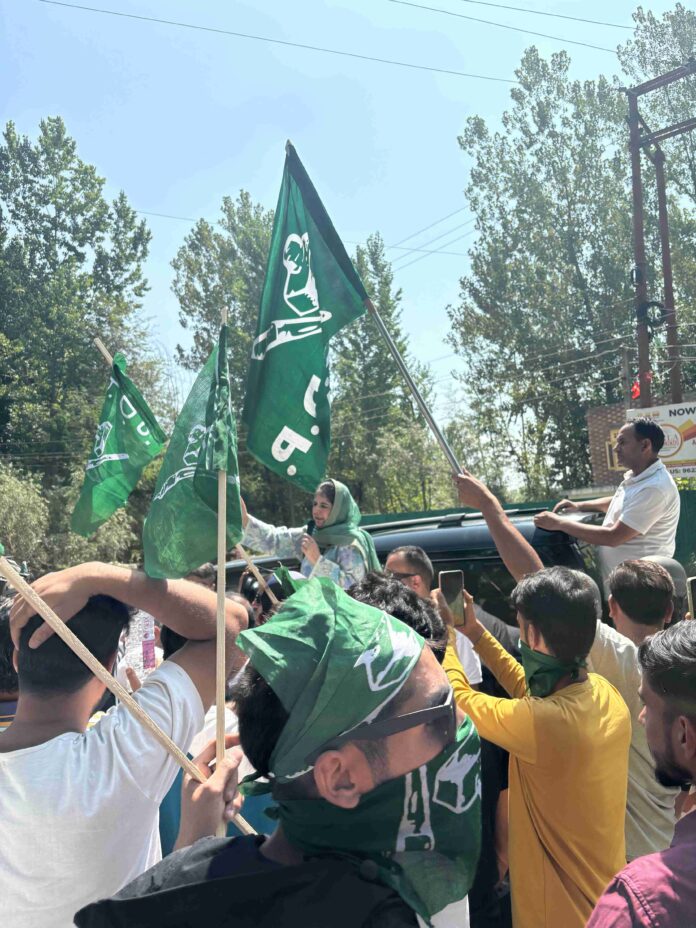Mohammad Aatif Ammad Kanth, TwoCircles.net
Anantnag: The scene was set in Bijbehara, where she campaigned for her daughter Iltija Mufti. A gathering of around 100 eager supporters, primarily men, awaiting their leader Mehbooba Mufti, president of the Peoples Democratic Party (PDP), to arrive near a local petrol pump. When she addressed the crowd from her car, she invoked her family’s legacy, contrasting her party’s compassionate governance against the backdrop of her opponents’ controversial histories.
The three-phased Jammu and Kashmir elections, which finally concluded on October 1, witnessed her party striving for a revival. Her journey into politics began in the tumultuous 1990s, a time marked by violence and resistance in the region. The daughter of former Union Home Minister Mufti Mohammad Sayeed, she initially entered the political arena to fulfill her father’s aspirations. Campaigning fearlessly in a region rife with risk, her early actions, such as advocating for the release of detainees, helped build her image as a compassionate leader.
Reflecting on that period, Nayeema Mehjoor, a seasoned journalist, noted how Mehbooba’s empathy for victims of violence established her rapport with the people, particularly in South Kashmir. This connection was instrumental in the PDP’s electoral success in 2002, as they formed a coalition government with the Congress.
A Double-Edged Alliance
However, the political landscape shifted dramatically when she chose to ally with the Bhartiya Janata Party (BJP) following the 2014 elections. The decision, framed as a “paradigm shift”, led to widespread disillusionment among her supporters. Many, including Mehbooba herself, believed it would pave the way for positive changes in Kashmir politics. Yet, the reality was starkly different. The coalition faced immediate backlash, culminating in intensified unrest following the 2016 killing of militant commander Burhan Wani.
Her handling of the subsequent protests was a turning point in her career. Her infamous remarks during a press conference, questioning the circumstances of teenage deaths during the unrest, alienated her from the very people she had once empathised with. The incident marked a steep decline in her political fortunes, leading to her resignation in 2018 after the BJP pulled out of their alliance.

The Path Forward
In the years following her resignation, Mehbooba attempted to reconnect with the electorate by visiting families of militants and voicing concerns about the BJP’s policies. However, her efforts struggled to gain traction, as evidenced by her electoral defeats in the 2019 and 2024 parliamentary elections.
As she stepped back from direct electoral competition, her focus was now on revitalising the PDP’s base through new candidates, including her daughter, Iltija.
At a recent rally, she emphasised the necessity of her party’s role in ensuring “secular” governance in Jammu and Kashmir. “No secular government is possible in J&K without PDP’s support,” she asserted, rallying her supporters to believe in a potential resurgence.
Community Perspectives
Despite her attempts to rebuild trust, sentiments among the electorate remained mixed. Many former supporters, like Mohammad Yaqoob from Shopian, expressed deep resentment, blaming her for the suffering caused during her tenure. “She broke the hearts of common Kashmiris. We will never give her another chance,” he declared, encapsulating the feelings of many disillusioned voters.
Conversely, some long-time supporters, like Mohammad Rafiq from Bijbehara, saw a glimmer of the “old Mehbooba” who once connected deeply with the community. “I wish we could erase the years of controversy, as she truly represented the aspirations of the people,” he reflected.
As the PDP navigates the complexities of the current electoral landscape, Mehbooba Mufti’s ability to balance her party’s legacy with the harsh realities of public sentiment will be crucial. Her journey from a beloved figure in the 1990s to a controversial leader in recent years encapsulates the shifting dynamics of Jammu and Kashmir’s politics. Whether she can orchestrate a comeback in these elections remains uncertain, but her commitment to reviving the PDP’s fortunes is palpable as she strived to reconnect with the electorate amidst a tumultuous political climate.


